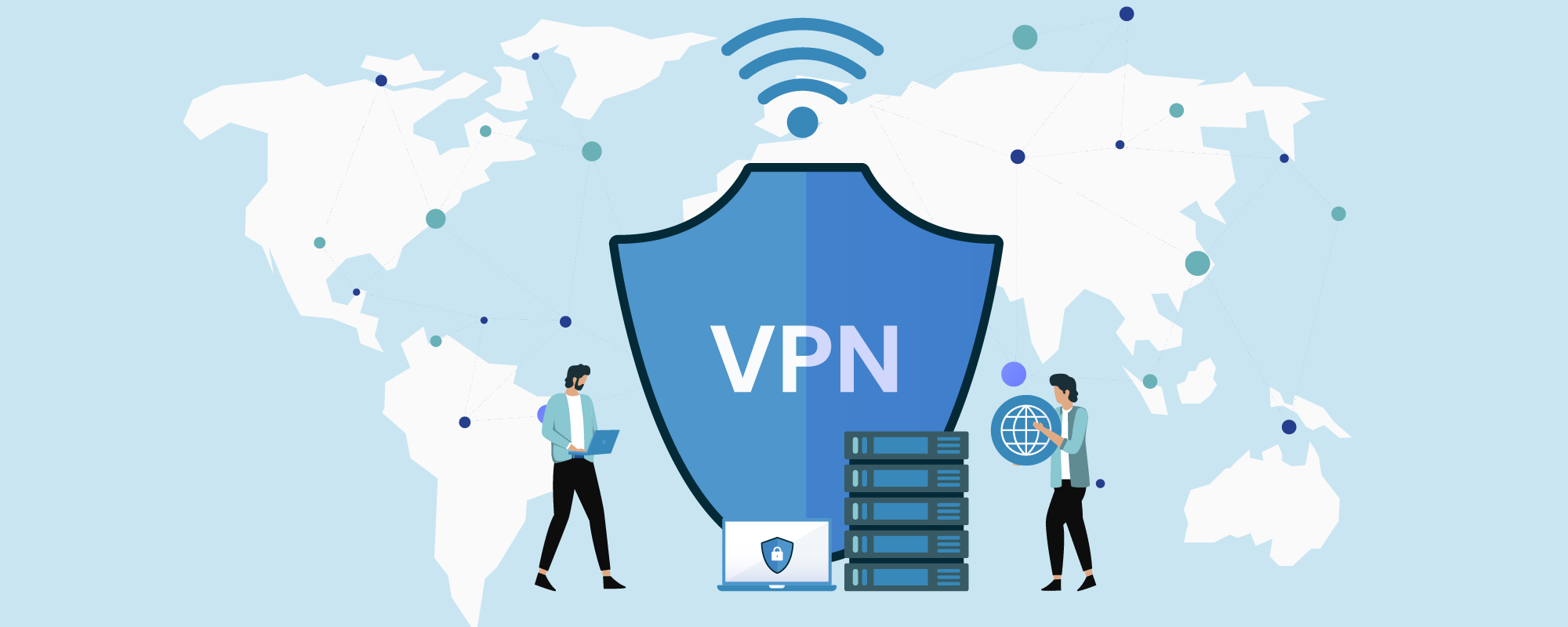
Should I Use a VPN?
What Is a VPN?
VPN stands for a Virtual Private Network.
VPNs are digital tools that filter your web traffic and encrypt your data. Think of it as the fence that guards the sensitive information stored on your computer.
When you connect to a VPN, the system forms a safeguarded tunnel that protects the information that travels to and from your server.
If you currently find yourself in the boat of working remotely and traveling to public places to work on your laptop, then you may want to use a VPN to keep your personal and business information safe.
Pros and Cons of Using a VPN
Pros of Using a VPN:
- Data Security: connecting to a public server without encryptions leaves your data vulnerable to cyberattacks
- Online Privacy: without encryption, internet service providers and websites that use cookies can snoop on what you’re doing and sell your information to third parties
- Separate IP Address: VPNs route your data through a private IP address so other websites can’t use your personal IP address to track your location and identity
- Complete Protection: VPNs are essential for people who travel to different countries for work because they will protect your connection no matter where you’re browsing
- No Bandwidth Throttling: You’ll always have the same Internet speed and capabilities through your VPN
- Easy to Use: even for people who aren’t tech-savvy, all you have to do is install a VPN and turn it on to get maximum protection
- Protection on Multiple Devices: most people only use VPNs on their private computers, but many services also offer protection for your smartphones, tablets, and other devices
Cons of a VPN
- Slower Connection: VPNs can sometimes slow down your connection speed because your connection has to be re-routed to a secure server. It’s best to read the reviews on any VPN you employ to see how much of a speed drop users experience.
- Free VPNs are Often Unsafe: While using a free VPN may seem cost-effective, it usually does more harm than good in the long run. Free VPNs typically have more security holes and weaker encryption models.
- Subscription Costs: Good VPNs cost money, but for a small monthly fee, you can have peace of mind.
- Doesn’t Protect Against Voluntary Data Collection: If you voluntarily give your data to a site like Google or Facebook, then a VPN won’t be able to protect you from what the site does with your data.
When and Why to Use a VPN
You should use a VPN anytime you connect to a public work to protect your sensitive information from being stolen and your Internet activity from being hacked.
Is a VPN Worth It?
Absolutely. As cybercrime rises and more people work from home (or coffee shops), protecting your data is critical. The advantages of using a VPN heavily outweigh the disadvantages and can save you from a significant amount of hassle from compromised data.
About SiteSpot
SiteSpot is a website management system that makes writing, designing and maintaining your site a breeze.